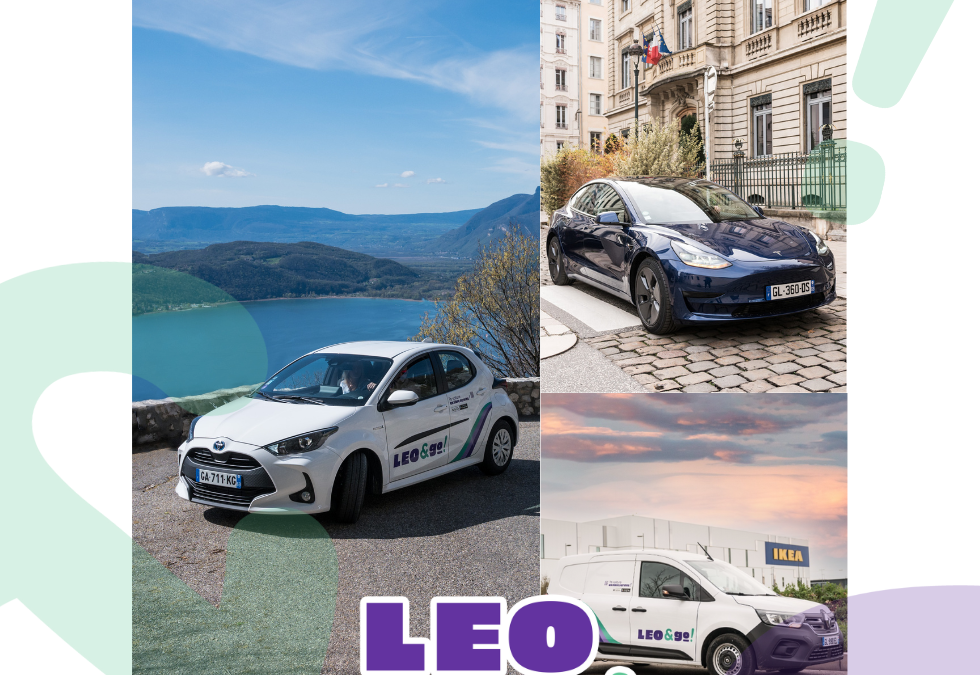For this edition of The Shared Journey, we sat down with Adam Jędrzejewski the Founder and CEO of Mobilne Miasto, the one and only association in Poland driving the domestic shared mobility market.
WARSAW. September 3, 2021 Let’s dive into Adam Jędrzejewski’s insights on why carsharing is growing in Poland & how to stay ahead of the game with his take on the key ingredients for carsharing success.
1/ Can you introduce yourself and share your vision of successful carsharing?
After taking part in shared mobility projects myself, approx. 2 years ago I created an association called “Mobilne Miasto”, which translates into “Mobile City”. It is the only such association in Poland driving the domestic shared mobility market via thought leadership, public affairs, and business intelligence. Our goal is to bring shared mobility to a bigger scale and our vision is less congested and polluted cities with more space devoted to people, not privately-owned cars parked 95% of the time.
After 2 years of focusing on Poland, now we now also want to accelerate shared and new mobility abroad, in Central and Eastern Europe, in particular. Also, while carsharing is one of the key elements of shared mobility, it is not the only one. For this reason, we are also fostering MaaS (Mobility-as-a-Service) combining public transit with different modes of shared mobility: bikes, kick scooters, mopeds, and Mobility on Demand such as taxi-hailing.
2/ Describe the shared mobility market in Poland.
Having a car can be a symbol of well-being, freedom & independence. This is one of the reasons why Polish people have always admired cars. Nevertheless, attitudes are slowly changing: the younger generation isn’t as concerned with the symbolism that comes with owning a car as they are with having the freedom that comes with shared mobility. And even though they are used to a certain level of comfort, for young people, cars have simply stopped being a “comfortable” mode of transportation.
Today, Poland is aligning with the Nordics and Western Europe in terms of mobility services: in Warsaw, for example, there are many carsharing, moped, and kick-scooter providers already on the market. Decision-makers are more and more open to the idea of encouraging more sustainable modes of transportation like the aforementioned alternatives by incentivizing people away from using less sustainable ones like old cars; however, being open doesn’t mean that there are currently bold decisions being made towards a more sustainable urban mobility.
For example, in Poland, there is a major issue with old cars which contributes to high levels of smog. Banning cars altogether or taking away parking would only create a backlash from older generations who want to keep the benefits of driving their private vehicle; therefore, giving incentives rather than taking away what – to some older drivers – may feel like privileges, has been seen as a much more effective approach. Shared mobility needs such incentives in Poland nowadays in order to make the shift from owning a car to rather using one when really needed.
3/ What is your role in the carsharing movement?
There are many players that need to be involved in the carsharing movement in order for it to be successful, and while it’s not easy, all players need to be engaged from all directions. Trying to integrate them into the movement and convince them to cooperate and collaborate, is a real challenge.
This is where we come in. At “Mobile City” we are trying to change the mindsets of the decision-makers by promoting shared mobility via debates, discussions, reports, as well as other forums and projects fostering shared mobility. By developing these kinds of relationships and becoming friends with the city, we are able to show city officials firsthand the many advantages that shared mobility can offer. And as we continue to build a coalition of shared mobility players, the concept and practice of shared mobility become more relevant to Polish citizens. We are consistently growing as the association, from just a few members in the first year to several members today including some globally acknowledged mobility and technology brands.
We also offer business intelligence and insights into what is happening on the market. This is quite important because more and more international companies are looking into the Polish market for a variety of reasons. Shared mobility is definitely a market worth exploring in Poland since it is closely linked to many other ecosystems. If we take the real estate industry, for example, shared mobility can actually increase the value of real estate. Owners and property managers of apartment buildings, shopping malls, and office buildings all want to increase their take up and footfall. Shared mobility is key in facilitating access to these hot spots which means more clients, greater profitability, and higher value. For this reason, we are piloting the first Poland multimodal Mobility Hubs on commercial real estate.
4/ Would you consider carsharing successful/profitable in Poland? If so, what is the reason for this success?
While carsharing is becoming successful in Poland, I wouldn’t consider it profitable just yet. We need to take advantage of the movement that bike-sharing and ride-hailing services started, but we also need help at both central and local government levels to make the move from private ownership to shared mobility. In fact, there’s a lot of room for public administration to get involved, because if you want to make a change, it won’t happen by private companies alone coming to disrupt the market. This “disruption” must go in line with local government policy by giving people more incentives to use other modes of transportation.
To help carsharing reach success, local investors need to invest in shared mobility including EV carsharing. In fact, energy companies – which in Poland are mainly state-owned and are therefore not very competitive or business-oriented – actually have a lot to gain from investing in e-mobility solutions.
5/ Where do you see carsharing 3 years from now and who do you think will be the major players?
I see it going big and strong! Many things are happening right now in Poland which is going to fuel the carsharing movement in the near future. According to our estimates from our recent market report in 3 years the carsharing market in Poland will grow by 50% to the value of almost 30 million EUR.
In Poland, several unique “e-mobility laws” were adopted in order to stimulate the development of e-mobility in the transport sector. There’s also legislation mandating that 6K charging stations should be put into place and made publicly available by 2020. Charging infrastructure will help boost the shared mobility industry by making sharing modes more effective and accessible. This will, of course, also help to accelerate the shift from combustion engines to electric vehicles.
The legislation will definitely continue growing in this direction with special benefits also attributed to shared mobility providers. That’s our aim. Taxis have benefits in Poland, so why shouldn’t carsharing? Especially when shared cars are so much more efficient than taxis from a financial and environmental perspective.
6/ What is, in your opinion, the key ingredient to success for a carsharing service?
You need a sustainable business model, and in this regard, multi-modality seems to be very important. If you start with carsharing, you will eventually want to expand your offer to meet different user needs. Therefore, it may be wise to add, for example, mopeds or e-scooters within your existing brand in order to ensure greater sustainability in the long run. Also, looking for alternative sales channels is important, for example, through partnering with MaaS-platforms as well as having a B2B offer for companies.
But perhaps, most importantly, you need to have good relationships that you can rely on and that won’t change overnight – with the city, with companies, and with other mobility players with whom you can drive the movement. Of course, there is always risk associated with changes happening all the time, however, we managed to come a really long way with the “Mobile City” movement and we are not stopping, actually quite the opposite: taking advantage of it in order to boost shared mobility in Poland and CEE.
Vulog, the world’s leading tech mobility provider, is proud to connect with Mobilne Miasto, pursuing new, shared mobility. Mobilne Miasto supports solutions allowing urban citizens to commute in a convenient, economic and ecological way.




